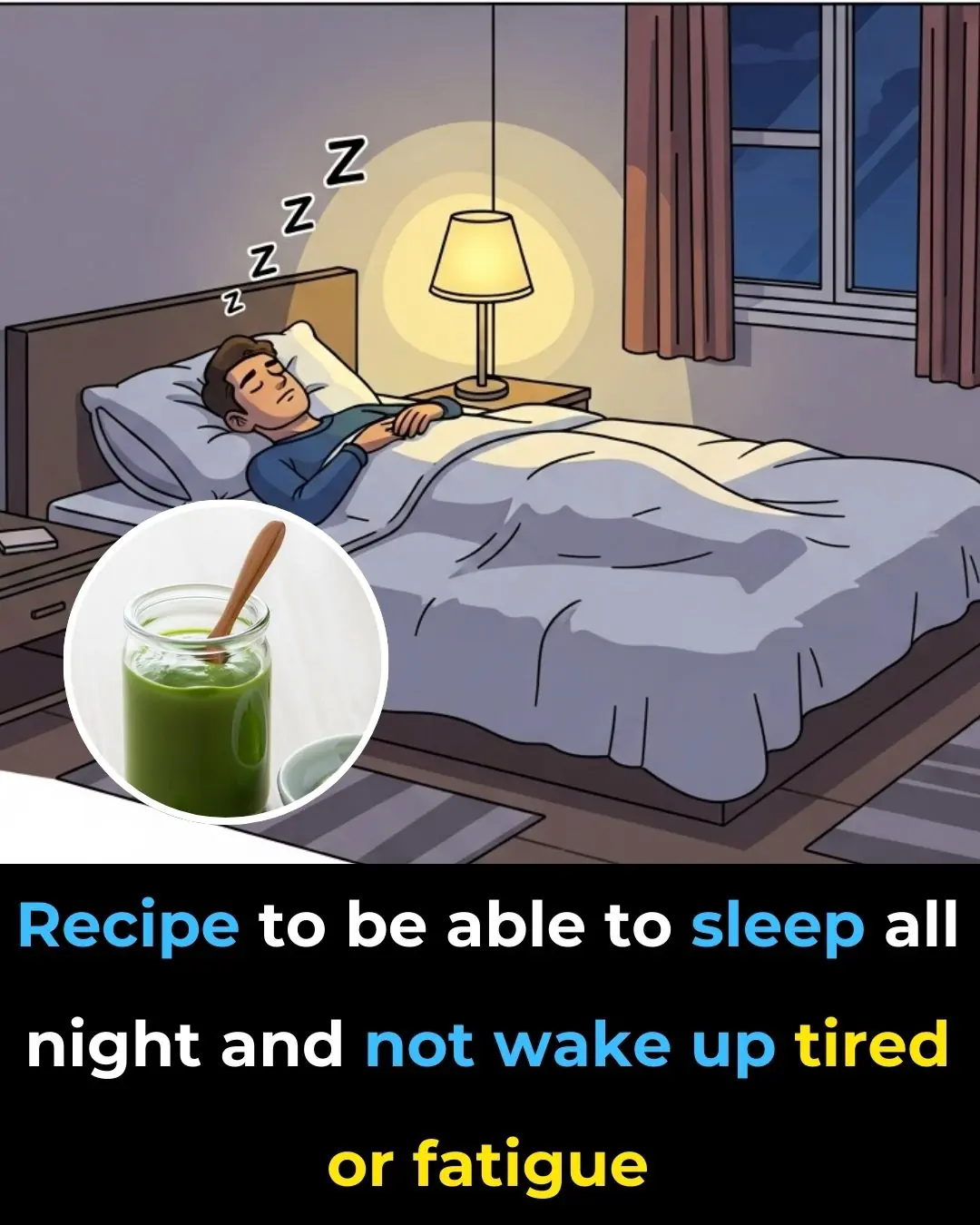
Sleeping Enough But Still Tired

Getting 7 to 8 hours of sleep each night is the standard advice for staying healthy and feeling well-rested. But what happens when you follow that rule—yet still wake up groggy, sluggish, or feeling like you didn’t sleep at all?
You're not alone.
This frustrating experience is more common than most people realize. And contrary to popular belief, it’s not always due to stress or overworking. The truth is simple, but often overlooked: More sleep doesn’t always mean better sleep.
So if you’re waking up every morning with low energy, brain fog, or that heavy, unmotivated feeling, it might be time to ask yourself a crucial question:
Am I actually resting—or just spending time in bed?
Why Do I Feel Exhausted Even After Enough Sleep?
Sleep quality isn’t just about the number of hours you spend asleep. What really matters is what happens during those hours. Your brain and body cycle through several sleep stages each night—including light sleep, deep sleep, and REM (rapid eye movement) sleep. If these cycles are repeatedly interrupted—even briefly—it can leave you feeling like you barely rested at all.
Let’s dive into some common (and often overlooked) reasons why you might be waking up tired:
1. Unrefreshing, Shallow Sleep
You may be in bed for 8 hours, but if your sleep is fragmented or you’re not reaching the deeper sleep stages, you’re not getting the full benefits. Deep sleep is when your body undergoes physical repair, and REM sleep is when your brain processes emotions and consolidates memories.
Common causes of poor-quality sleep include:
-
Stress or racing thoughts at night
-
A noisy or disruptive environment (even subtle sounds can disturb sleep)
-
An uncomfortable mattress or pillow
-
A room that’s too warm, too cold, or poorly ventilated
-
Restless sleep due to poor bedtime habits
If you’re tossing and turning or waking up multiple times a night, your sleep cycles may never complete properly—leaving you drained the next day.
2. Sleep Apnea or Breathing Issues While Sleeping
Sleep apnea is a condition where your breathing repeatedly stops and starts during sleep—sometimes hundreds of times a night. You might not remember waking up, but your brain does. Each pause disrupts your sleep rhythm and blocks you from reaching deep sleep.
Possible warning signs include:
-
Loud, persistent snoring
-
Waking up with a dry mouth or sore throat
-
Morning headaches
-
Gasping or choking during sleep
-
Excessive daytime sleepiness despite a full night in bed
If you suspect sleep apnea, don’t ignore it. A simple sleep study can lead to diagnosis—and potentially life-changing treatment.
3. Poor Diet and Nutrient Deficiencies
What and when you eat can directly affect how you sleep. Heavy, sugary, or greasy meals close to bedtime can interfere with digestion and make your body restless. Similarly, caffeine and alcohol—even consumed hours earlier—can disrupt deep sleep.
In addition, deficiencies in key nutrients like:
-
Magnesium
-
Iron
-
B vitamins
-
Vitamin D
can all contribute to low energy, sleep disturbances, and chronic fatigue. It’s a good idea to have your nutrient levels checked if tiredness persists despite other improvements.
4. Too Much Screen Time Before Bed
The blue light from your phone, tablet, or TV suppresses melatonin, the hormone responsible for making you feel sleepy. This delays your natural sleep onset and shortens the window for deep, restorative rest.
What you can do:
-
Shut down screens at least an hour before bedtime
-
Use “night mode” or blue light filters on devices
-
Replace screen time with reading, relaxing music, or mindfulness exercises
Small tech changes can make a big difference in your sleep quality.
5. Mental & Emotional Burnout
Sleep is physical, but exhaustion isn’t always. Mental fatigue, chronic stress, anxiety, or emotional overload can prevent your mind from fully unwinding—even when your body is resting.
You might fall asleep, but your brain stays active, running in the background all night long.
To support mental rest, try:
-
Deep breathing or meditation before bed
-
Journaling your thoughts to clear your mind
-
Gentle yoga or stretching
-
Talking through your worries with someone you trust
Your emotional well-being is deeply connected to your sleep patterns.
6. Inconsistent Sleep Schedule
Your body has an internal clock called the circadian rhythm, which thrives on consistency. Going to bed and waking up at different times each day—especially on weekends—can confuse your system and reduce sleep quality.
Even if you get 8 hours, irregular sleep times can leave you feeling like you only got four.
Try this:
-
Set a regular bedtime and wake-up time—even on weekends
-
Avoid naps longer than 30 minutes late in the day
-
Get morning sunlight to help regulate your body clock
Sticking to a rhythm helps your body fall asleep faster and wake up feeling more refreshed.
7. Undiagnosed Health Conditions
If none of the above helps, there may be an underlying medical issue at play. Several conditions can cause ongoing fatigue despite adequate sleep:
-
Thyroid disorders (like hypothyroidism)
-
Anemia or low iron levels
-
Vitamin D deficiency
-
Chronic fatigue syndrome
-
Fibromyalgia
-
Depression or anxiety disorders
If you’ve ruled out lifestyle factors and still feel exhausted, consult your doctor. A few simple tests could uncover a treatable condition.
What Can You Do To Start Feeling Better?
Here are a few powerful yet simple steps to improve your sleep and feel truly rested:
✅ Stick to a Routine
Go to bed and wake up at the same time daily. Your body thrives on predictability.
✅ Upgrade Your Sleep Environment
Keep your bedroom dark, quiet, and cool. Consider blackout curtains, eye masks, white noise machines, or earplugs.
✅ Invest in the Right Bedding
Choose a supportive mattress and pillow suited to your sleep style (side, back, or stomach).
✅ Eat Smart in the Evenings
Avoid heavy meals, sugar, caffeine, and alcohol close to bedtime. Try herbal teas or light snacks like nuts or bananas.
✅ Unplug and Unwind
Replace screen time with a calming bedtime routine—read a book, take a bath, or listen to soothing music.
✅ Seek Professional Help If Needed
If persistent fatigue doesn’t improve, talk to a healthcare provider. Don’t hesitate to ask for a sleep study or blood tests.
Final Thoughts
Feeling tired after what should be “enough” sleep can be deeply frustrating—but it’s also fixable. In many cases, small shifts in your habits, sleep environment, or lifestyle can dramatically improve how you feel in the morning.
Remember: Sleep isn’t just a block of time—it’s a dynamic, restorative process. When you prioritize its quality as much as its quantity, your energy, mood, and overall well-being will begin to shift.
Your body knows how to rest. Sometimes, it just needs the right support
News in the same category


Ways Your Body Secretly Tells You You’re Stressed

How to effectively cleanse your lungs in just 72 hours

Scientists find a berry that can combat cancer, diabetes, and obesity

Simulation Reveals the Science Behind Nightmares of Losing Teeth

Insane simulation shows crazy impact of eating popular superfood everyday has on your body

Discovery Warrants Critical Rethink of Phantom Limb Pain Treatment

Can UV Light Reduce Infections in Long-Term Facilities?

10 Ordinary Fruits With Amazing Health Benefits

9 Medications That Can Negatively Interact With Green Tea

More people are dying from heart failure, doctors warn: give up these 4 habits now

How to Get Rid of Lizards: Effective Natural Ways that Really Work

How to Keep Snakes Away: Effective Snake Repellents

Healthy Man Shares the Unexpected Bathroom Symptom That Exposed His Bowel Cancer
When 38-year-old Dave Paxton noticed his stool had turned darker than usual, he had no idea this small sign would lead to a devastating cancer diagnosis—one so rare that only 22 people in the world have ever had it.

Eat Sweet Potatoes Daily and See These 7 Sh0cking Changes On Your Body
Sweet potatoes contain resistant starch, a special carbohydrate that bypasses digestion in the small intestine. Instead, it ferments in the large intestine, promoting the release of hormones that signal satiety to the brain. T

Surprising Health Benefits of Chicken Feet That Will Change the Way You Eat
Chicken feet may not look glamorous, but their nutritional profile proves they deserve a place at your table.

10 Early Signs of Pancreatic Cancer

5-Year-Old Loses Battle With Cancer — Doctors Reveal 5 Foods Parents Must Never Give Their Children

Surgeons Have Achieved The First-Ever Robotic Heart Transplant Without Any Chest Cuts
News Post

Remedy For Falling Asleep Quickly

Ring Finger Longer Than An Index Finger

Ways Your Body Secretly Tells You You’re Stressed

How to effectively cleanse your lungs in just 72 hours

Scientists find a berry that can combat cancer, diabetes, and obesity

She Spent $70,000 on Cosmetic Procedures — Now She’s Owning Her Beauty Despite the Backlash

Simulation Reveals the Science Behind Nightmares of Losing Teeth

Woman employed by popular mobile network sues company after being 'forced' to do nothing for 20 years

Insane simulation shows crazy impact of eating popular superfood everyday has on your body

Discovery Warrants Critical Rethink of Phantom Limb Pain Treatment

Can UV Light Reduce Infections in Long-Term Facilities?

Secret tip: How to clean glossy tiles at home without spending a penny

If your air fryer is rusty: Just do this and the rust will be easily cleaned

The surprising benefits of coffee grounds, if you have them at home, never throw them away

Eating sweet potatoes in the morning: A small habit, but you'll be amazed by the huge benefits it brings.

Effective and simple ways to restore a non-stick pan without needing to replace it

When the water pipe is completely clogged, just pour this down and it will be solved easily, no need to waste money calling a plumber.

Do you need to unplug the rice cooker after the rice is cooked? The answer is surprising.
